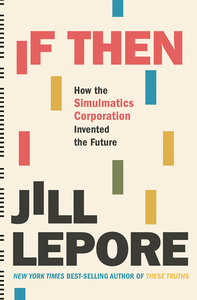Take a photo of a barcode or cover
slow-paced
challenging
informative
reflective
slow-paced
Necessary reading for anyone trying to make sense of where we are with predictive analytics and all the harm they have caused. Ever the historian, Lepore's writing manages to balance very detailed on specific moments, people, and relationships in this saga within the broader political and social changes that rocked the US and the world from the 50s through the 70s. It is hard not to get frustrated when you see for just how many _decades_ our elected representatives have avoided thinking critically and carefully about the relationship between data, privacy, and social control.
Lepore's exploration of the Simulmatics Corporation is mildly interesting, but from reading this book I only had a superficial grasp of the actual analyses that Simultatics did, how it actually informed political decisions by the Kennedy campaign (I gather it didn't have much of an impact on campaign decisions), and the legacy of its analysis on subsequent work. The sense I get is that this company is merely an interesting footnote in the history of applied quantitative political science, that it made outsized claims for its insights, and it is probably more interesting for how applied social scientists ripped off people rather than paving the way for Facebook and Cambridge Analytica.
this is such a compellingly written book about such an interesting topic that i have never really thought about before.. computers ‼️ and behavioral science ‼️
I don't really have words for how excellent this book is--it works on so many levels. On one, it's a history of how mid-twentieth-century politics was forever changed by learning to harness psychology, advertising, and most importantly, computing. It's also an engaging, almost-movie-like portrayal of how the strong personalities of the Simulmatics Corp. came together--think Ocean's Eleven but with more professors and Mad Men. But it's also just darn pretty, poetic storytelling of the many elements that make history, well, history. The latter may not be everyone's cup of tea, but I found myself highlighting passages I thought were appealing, as well as those that were important to understanding vintage computing. E.g.:
"The sun rises, the sun sets, and still no one ever really knows what will happen next. In a world of endless uncertainty, the forecasting of the future began with the very oldest human societies. The Greeks built a shrine to the Oracle of Delphi; the Incas built a temple to the Oracle at Pachacamac. Buddhists, Muslims, Christians, Jews, every religion, every culture: all have had their prophets and their temples, their diviners, their readers of omens, their seers. Time passed, centuries, millennia. And then, beginning in the middle decades of the twentieth century, Americans began building machines meant to serve as their oracles, new seers, electronic prophets, diviners of data."
If that makes you roll your eyes, then you may want to skip the first third of the book, if not the whole thing. But I am very grateful to the publishers and NetGalley for the chance to read an ARC of this book, and will buy a few copies as gifts for friends as well as myself.
"The sun rises, the sun sets, and still no one ever really knows what will happen next. In a world of endless uncertainty, the forecasting of the future began with the very oldest human societies. The Greeks built a shrine to the Oracle of Delphi; the Incas built a temple to the Oracle at Pachacamac. Buddhists, Muslims, Christians, Jews, every religion, every culture: all have had their prophets and their temples, their diviners, their readers of omens, their seers. Time passed, centuries, millennia. And then, beginning in the middle decades of the twentieth century, Americans began building machines meant to serve as their oracles, new seers, electronic prophets, diviners of data."
If that makes you roll your eyes, then you may want to skip the first third of the book, if not the whole thing. But I am very grateful to the publishers and NetGalley for the chance to read an ARC of this book, and will buy a few copies as gifts for friends as well as myself.
If you read this book to the end, then you will shake your head wearily, muttering, “There really is nothing new under the sun...”
If you are interested in the history of tech and unintended consequences, highly recommend.






